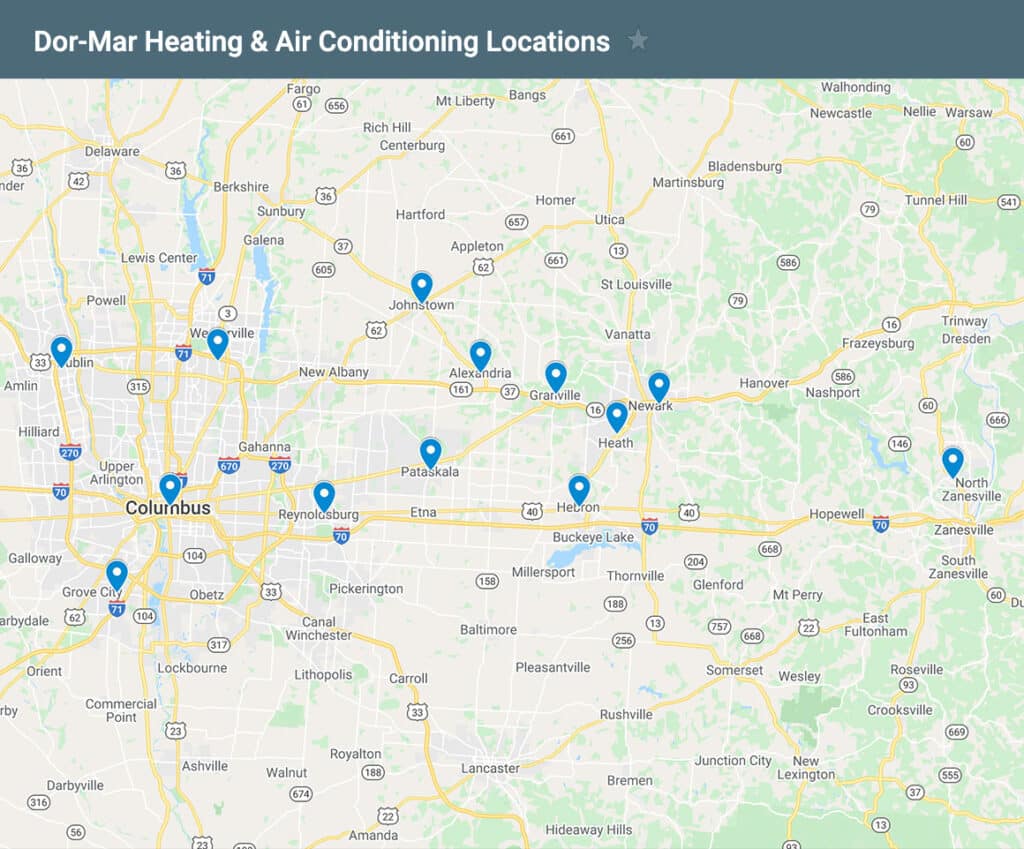Dor-Mar Homeowner's Blog

DIY Radon Testing: Cheap and Easy or a Dangerous Mistake?
Protect Your Home with Radon Testing from Dor-Mar Radon is an invisible, odorless gas that can seep into homes from the soil. Long-term exposure is the second leading cause of lung cancer in the United States. Testing for radon is the only way to know if your home has dangerous levels. But is a DIY radon test enough, or should you invest in a professional test? Let’s break down the costs, risks, and best options

Radon Levels Too High? Here’s What You Must Do Immediately
Radon is an invisible, odorless gas that can pose a serious health risk to you and your family. If your home has high radon levels, you need to act fast to reduce exposure. Ignoring this issue can lead to long-term health problems, including lung cancer. In this guide, we’ll walk you through what radon is, how to test for it, and the steps you need to take to lower dangerous radon levels in your home.

Why Ignoring Radon Can Cost You More Than Just Your Health
Radon is an invisible threat lurking in homes across the country. This radioactive gas can seep into your home without any warning signs, putting you and your loved ones at risk. Many homeowners overlook radon because it has no smell, taste, or immediate symptoms. However, prolonged exposure can cause serious health issues, including lung cancer. Beyond the health concerns, ignoring radon can also hit your wallet. From expensive medical bills to a drop in your

Radon in Your Home? How to Find Out Before It’s Too Late!
Radon gas is an invisible, odorless, and tasteless radioactive gas that can seep into your home without warning. Long-term exposure to high radon levels is the second leading cause of lung cancer in the United States, making it a silent but deadly threat. If you’re unsure whether your home is at risk, now is the time to take action before it’s too late! What is Radon and Why Should You Care? Radon is naturally released

Radon in Your Home? How to Find Out Before It’s Too Late!
Radon gas is an invisible, odorless, and tasteless radioactive gas that can seep into your home without warning. Long-term exposure to high radon levels is the second leading cause of lung cancer in the United States, making it a silent but deadly threat. If you’re unsure whether your home is at risk, now is the time to take action before it’s too late! What is Radon and Why Should You Care? Radon is naturally released

Tax Credits, Rebates, and Incentives for Ohio Homeowners Installing High-Efficiency Heating and Cooling Equipment
Upgrading to high-efficiency heating and cooling systems is a smart move for Ohio homeowners, offering enhanced comfort, reduced energy bills, and a smaller environmental footprint. To make these upgrades more affordable, various federal tax credits, state incentives, and utility company rebates are available. Let’s explore the specific opportunities as of January 3, 2024. Federal Tax Credits for Energy Efficiency The Energy Efficient Home Improvement Credit, part of the Inflation Reduction Act, provides substantial tax benefits

Carbon Monoxide: The Silent Killer in Your Home
Carbon Monoxide: The Silent Killer in Your Home Understanding the Dangers of Carbon Monoxide Poisoning When it comes to keeping your home safe and cozy, few things are as essential as a properly functioning furnace. But did you know that a defective furnace could pose a serious health risk to you and your loved ones? Carbon monoxide (CO) poisoning, often called the “silent killer,” is a life-threatening hazard that every homeowner should be aware of.

Top 3 Reasons Your Heat Stops Working on the Coldest Days
When temperatures plummet, the last thing you want is for your heating system to fail. Unfortunately, the coldest days of the year often put extra strain on your heating system, causing unexpected breakdowns. To help you understand what might be happening, here are the top three reasons your heat stops working when you need it most. 1. Overworked Heating System On extremely cold days, your heating system has to work harder than usual to maintain

Should You Shut Off Your Water When Traveling for the Holidays?
Should You Shut Off Your Water When Traveling for the Holidays? When you’re preparing for holiday travels, your checklist probably includes packing, securing your home, and maybe even prepping your car. But have you ever considered shutting off your water before leaving? It might seem like a small detail, but it could save you from a holiday disaster. Let’s dive into why this practice matters and how you can do it effectively. Why Is Shutting



